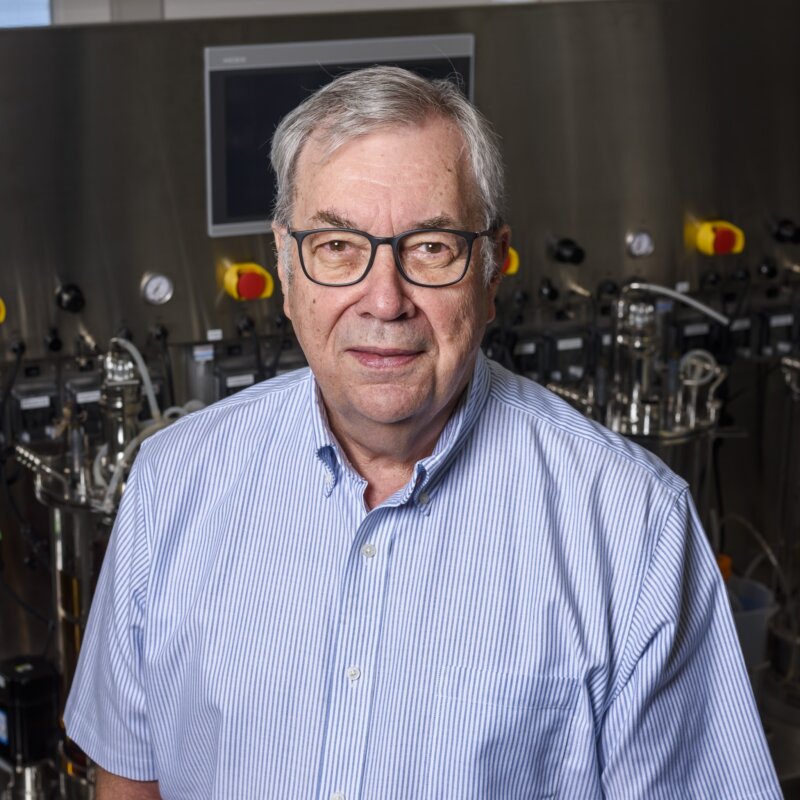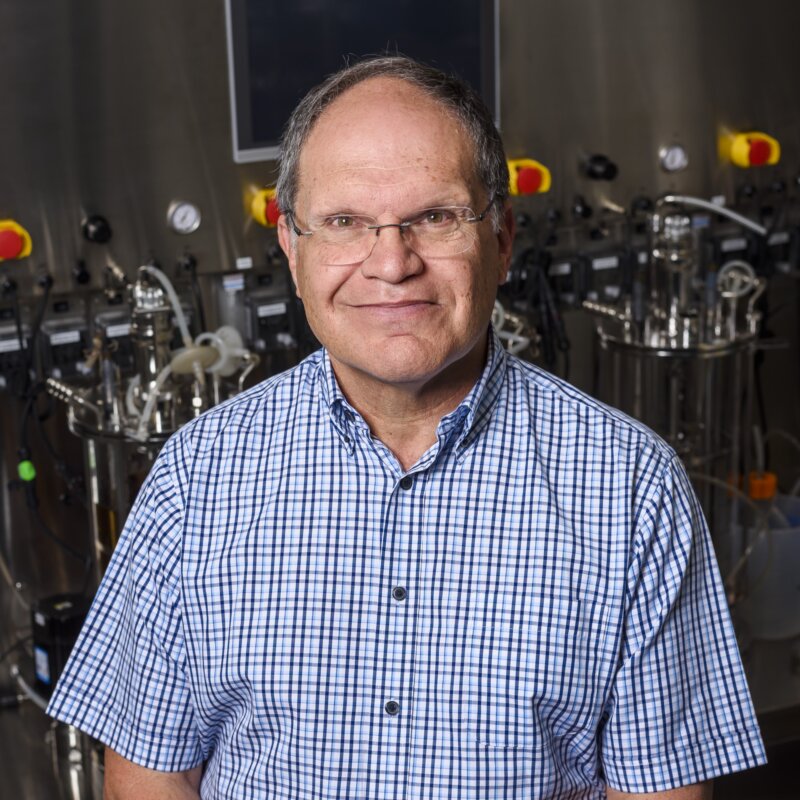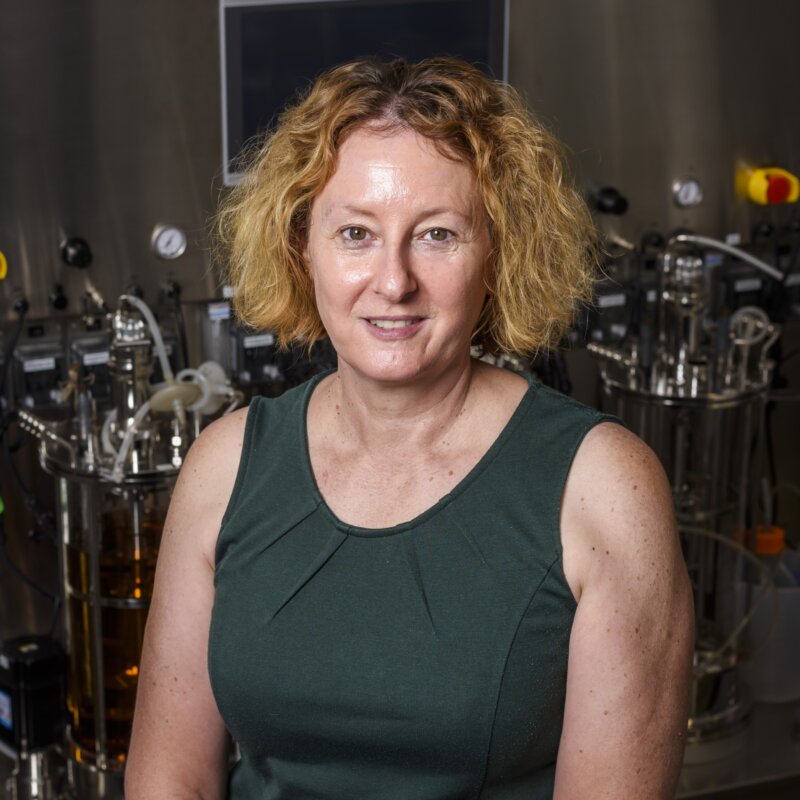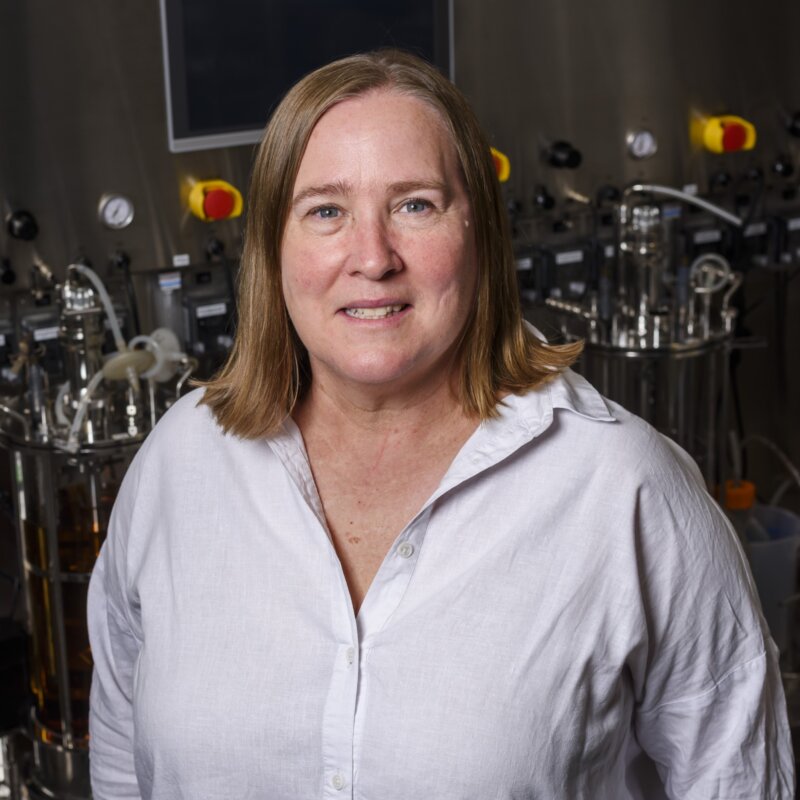Biological Advisory Board
Neutrog’s Biological Advisory Board provides global expertise in biological research, soils, plants and product development, meeting quarterly to guide and challenge Neutrog’s R&D team.

Prof. Paul Manning
D.SC. Ph.D. FASM FRMS
Professor Paul Manning is a leading expert in infectious diseases, utilising his experience at The University of Adelaide and AstraZeneca, alongside extensive teaching, consulting and publication experience globally.

Assoc. Prof. Renato Morona
Ph.D.
Associate Professor Renato Morona has over 40 years of research experience in bacterial pathogens, His work includes bacterial genetics and protein analysis, contributing significantly to understanding bacterial virulence.

Assoc. Prof. Kirsty Bayliss
Ph.D.
Associate Professor Kirsty Bayliss, a plant scientist with a Ph.D. in Plant Pathology, specialises in disease management for crops and fresh produce. She leads major research projects for which she has received international recognition.

Dr Sally Fryar
Ph.D.
Dr Sally Fryar is a Mycologist with over 30 years’ experience in research, academic tutoring, and lecturing with particular interest and expertise in fungal ecology, evolution and systems.
Biological Advisory Board

Prof. Paul Manning
D.SC. Ph.D. FASM FRMS
Professor Paul Manning completed a Bachelor of Science (Hons.) from Flinders University in 1973, followed by a Ph.D. from the University of Adelaide in 1977. He was subsequently awarded a D.Sc. (Doctor of Science of the University.
Between 1977 and 1998 Paul worked at the University of Adelaide, including a Fellowship from the Max-Planck Society and sabbaticals in Germany sponsored by the Alexander von Humboldt Foundation. Throughout this time, his research focused on infectious diseases including cholera which led to him becoming one of the foremost experts in the world. It was in this specific field, whilst at the University of Adelaide, that Paul mentored Dr Uwe Stroeher, Neutrog’s R&D Manager.
In 1998 Paul moved to the US where he commenced a role as the Director of Microbiology & Molecular Biology at Astra Research Center Boston, and following the merger with Zeneca in 2000, Paul assumed the role of Head of Molecular Sciences in Boston at the newly formed AstraZeneca. Paul remained with AstraZeneca in this role until 2007.
On returning to Australia, Paul consulted in the biotechnology and pharmaceutical industries before completing a teaching degree.
Paul has spoken throughout Europe, North America, Asia and Australia and been published 195 times and has over 3,900 citations. Paul is a Fellow of the Royal Microscopical Society (FRMS) and the Australian Society for Microbiology (FASM) and a Member of The Society of General Microbiology (UK) and the American Society for Microbiology (USA).

Assoc. Prof. Renato Morona
Ph.D.
Associate Professor Renato Morona has over 40 years of research experience (PhD (Adel) 1982) in the study of bacteria.
His work has principally been on bacterial pathogens and their virulence factors, including cell surface proteins and polysaccharides. He has used bacterial genetics, recombinant DNA technology, and protein analysis to discover new genes and their functions in key biological processes used by bacteria to cause disease.
A research fellow at the Max Planck Institute for Biology (Germany), Renato then returned to the University of Adelaide in 1985 were he initially conducted vaccine research with Enterovax Ltd. He then worked as a research fellow, became an independent researcher, and obtained an academic appointment in 2003. Renato was engaged in research and teaching at the University of Adelaide until his retirement in 2021, where he currently has an Honorary appointment.
During that time with the University of Adelaide, Renato held a variety of appointments (Head of the Discipline of Microbiology and Immunology, Associate Dean Research (Faculty of Science), Head of the University of Adelaide Institutional Biosafety Committee, Member of NHMRC grant review panels, Expert Witness on several patent cases). He has graduated over twenty PhD students and was course co-ordinator for Infection and Immunity A (level III undergraduate) and Honours in Molecular and Cellular Biology. His research was funded by multiple NHMRC grants (including two Program Grants) and ARC grants (over $20M in career funding) and he has published 140 primary research articles and reviews.
Renato’s recent work has focussed on proteins and mechanisms of complex polysaccharide biosynthesis, and he published eight research articles in 2022. Renato is well known in Australia for his contributions to bacteriology, and in 2022 he received a Distinguished Service Award from the Australian Society for Microbiology.

Assoc. Prof. Kirsty Bayliss
Ph.D.
Associate Professor Kirsty Bayliss is a plant scientist specialising in the management of diseases of agricultural and horticultural crops and postharvest pathogens associated with fresh produce and grain. She has a strong interest in solving industry problems, with a passion for the development of chemical-free methods for improving crop performance and managing postharvest moulds and decays, with the aim of reducing food loss and waste.
Kirsty attended the University of Western Australia and completed a Bachelor of Science in Horticulture (Hons) in 1996, followed by a Ph.D. in Plant Pathology in 2000. After her PhD she was awarded an Australian Research Council postdoctoral fellowship to work on blackleg disease in canola. In 2003 she took up a Postdoctoral Fellowship at Murdoch University to work on diseases in tree plantations. In 2006 she was seconded to the Cooperative Research Centre for National Plant Biosecurity as Education and Training Manager for eight years where she was responsible for developing a national postgraduate curriculum in Biosecurity and also recruited more than 40 PhD students with the aim of building biosecurity capacity for Australia. Kirsty is currently Associate Professor at Murdoch University. She leads the Master of Biosecurity and Master of Food Security and also teaches undergraduate units “Paddock to Plate” and “Plant Protection and Biosecurity”.
She concurrently leads three major research projects totaling more than $4.5m, primarily supported by Horticulture Innovation, CRC for Future Food Systems, DFAT, and the Department of Defense and industry partners. Of particular interest is her project on using the microbiome associated with crops to improve their growth, similar to the human gut microbiome being needed for good health. This is an international project that includes collaborators from the International Phytobiomes Alliance. Her growing team comprises three staff and several PhD students working on food crops as diverse as artichokes and Spirulina. She has received international recognition for her innovative research and presented keynote addresses to a wide variety of audiences.
Kirsty has authored more than 40 publications to date. She is a peer reviewer for international journals such as the European Journal of Plant Pathology, and also reviews grants for the Australian Research Council and equivalent international funding agencies.
Kirsty joined the Neutrog Biological Advisory Board in October, 2023.

Dr Sally Fryar
Ph.D.
Dr Sally Fryar is a mycologist with a distinguished academic and research career spanning over two decades. She holds a PhD in Biology from Flinders University (1998), where her research focused on the ecology and taxonomy of wood decay fungi. She also holds a Graduate Certificate in Environmental Management from The University of New South Wales (2002), with specialisations in environmental impact assessment, GIS principles, environmental law, and remote sensing.
Sally has held roles in academia and government, including a postdoctoral fellowship at The University of Hong Kong, where she researched aquatic micro-fungi in Borneo and co-organised international conferences. From 2002–2003, she worked with NSW National Parks and Wildlife Service on wetland bird ecology and wetland loss using GIS and remote sensing technologies. Since 2008, she has been an Honorary Senior Research Fellow and lecturer at Flinders University, contributing to undergraduate and postgraduate teaching in biodiversity, conservation, and biotechnology.
Her expertise spans fungal taxonomy, ecology, molecular techniques, and conservation, and she has been an active contributor to multiple peer-reviewed journals. Sally has been awarded several research grants, including an ABRS grant (2021) and the Lirabenda Fund (2014). She is Co-Chair of the IUCN Aquatic Fungi Specialist Group, a member of the Fungal Conservation Committee, and curator of several specialist fungal biodiversity websites.